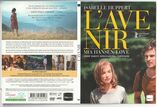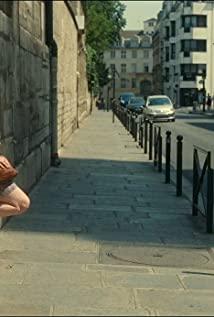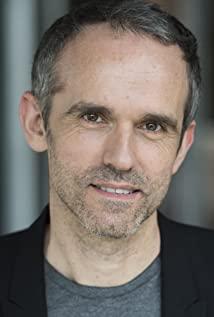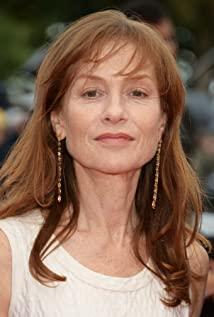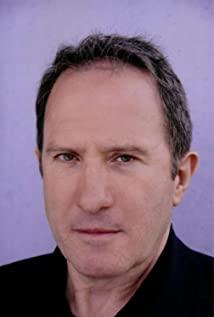When I feel tired, I watch "Something in the Future" over and over again. Since I entered adolescence, the feeling of building blocks in life has become stronger and stronger. Sometimes I pull out a block, and there is no aftermath other than shaking it twice; It's just some trivial things in life: failing an exam, falling out of love, death of a relative, quarrel with a good friend over different values, civil disputes, and so on.
Are these simultaneous moments of disintegration different from the peaceful and abundant life scenes - Huppert's affair with her husband, the rejection of her book, the death of her mother, in addition to reading on the subway, moving the dining table Vases, walking barefoot on a muddy shore for a telephone signal, or hurriedly chasing scattered papers on the lawn, teaching Rousseau in a philosophy class—bought two thick volumes of The New Heloise for the film , but have not been able to read it.
"If happiness is difficult to come, hope will extend, and the magic of fantasy will last as long as the passion lasts. This state is self-sufficient. The anxiety it brings is actually a certain degree of satisfaction, and this satisfaction can be Filling in reality, it could be better too. Unfortunately for the man who wants nothing, he loses everything he has because of it.”
This state of self-sufficiency is the power of the imagination, what the imagination can make up for its shortcomings. For imaginative people, like Julie, or Rousseau himself, this illusory satisfaction can be turned into a real comforting support.
Setting the heroine as the role of a philosophy teacher, coupled with the French philosophical atmosphere, she is irresistible to examine life - I have been taught too many times to be a "simple" person, not to think too much, and to be content with daily directness The pleasure of thinking about boring things does not seem to be in conflict with the pleasure of satisfying desires, nor is unexamined pleasure real pleasure, it just reduces aggression.
There seems to be a lot of man-made conflict - ideals and worldliness, glimpses of good and evil in others, private virtues and rights...
Fabian criticized her for always pursuing the consistency of life and ideals, but never thought of changing a way of life. What about others? I don't praise the initiative to choose a character of restraint, rationality, forbearance, to do whatever you want within fixed values, or to suddenly become a seemingly emotionally stable adult at the age or at a certain moment. What I want is the real and natural emotions created by life experience, raising the threshold, occasionally revealing true feelings and conflicts in the increasingly full and mature self.
Most of the time, the heroine deals with her husband's affair, her mother's anxiety and death, and her work is not going well. When the camera focuses on the space where she exists alone in her heart, the gazers and companions lose their effectiveness. Can't hold back the tears-
Even in her life, no longer young, sober and restrained, the most moving moments are still the moments when real emotions are revealed.
At her mother's funeral, she read out verse 229 of Pascal's "Book of Thoughts", accompanied by a narration, she boarded the bus home, saw her husband with her girlfriend while crying, and laughed uncontrollably again .
"This is what I see and disturbs me. I look everywhere, but see only darkness. Nature has given me nothing but the essence of doubt and anxiety. If I cannot see things that point to God, I will only I can think of myself as negative. If I see the traces of the Creator, I will rest in my faith. But I see too much negation and too little affirmation, so I am in a state of resentment. I have prayed countless times, if God wants to bless me, Then it must be clearly indicated that if the mark He left is ambiguous, then He will definitely erase it. He will either make it clear or be silent, so that I can find where I should follow, but my current situation is that I don’t know who I am. I don't know what to do, I don't know my situation, I don't know my responsibilities, I look forward to the best and follow it with all my heart, and I'm willing to give everything for eternity."
When her husband cheated, she said "I think you'll always love me, I'm an idiot". When I know that eternity cannot exist, I can't help praying for eternity, which is a "cry for help" in my opinion.
When quarreling with friends, we discuss "understanding," whether there is real understanding even between what both parties consider to be good friends. Or should we pursue what we believe to be true understanding in private experience. In the face of the phrase "loneliness is the norm", I used to have too much unwillingness, but now I accept it convincingly. Proximity means disenchantment, long-suffering, mutual understanding without reservation, defensiveness at the cost of keeping distance. This situation is not a sad necessity, happiness is obtained in "practice", in imagination, and loneliness is protection.
It's just, I hope that there is a chance, my "unwillingness" will surge up again, and my "call for help" can be answered by another person.
View more about Things to Come reviews



